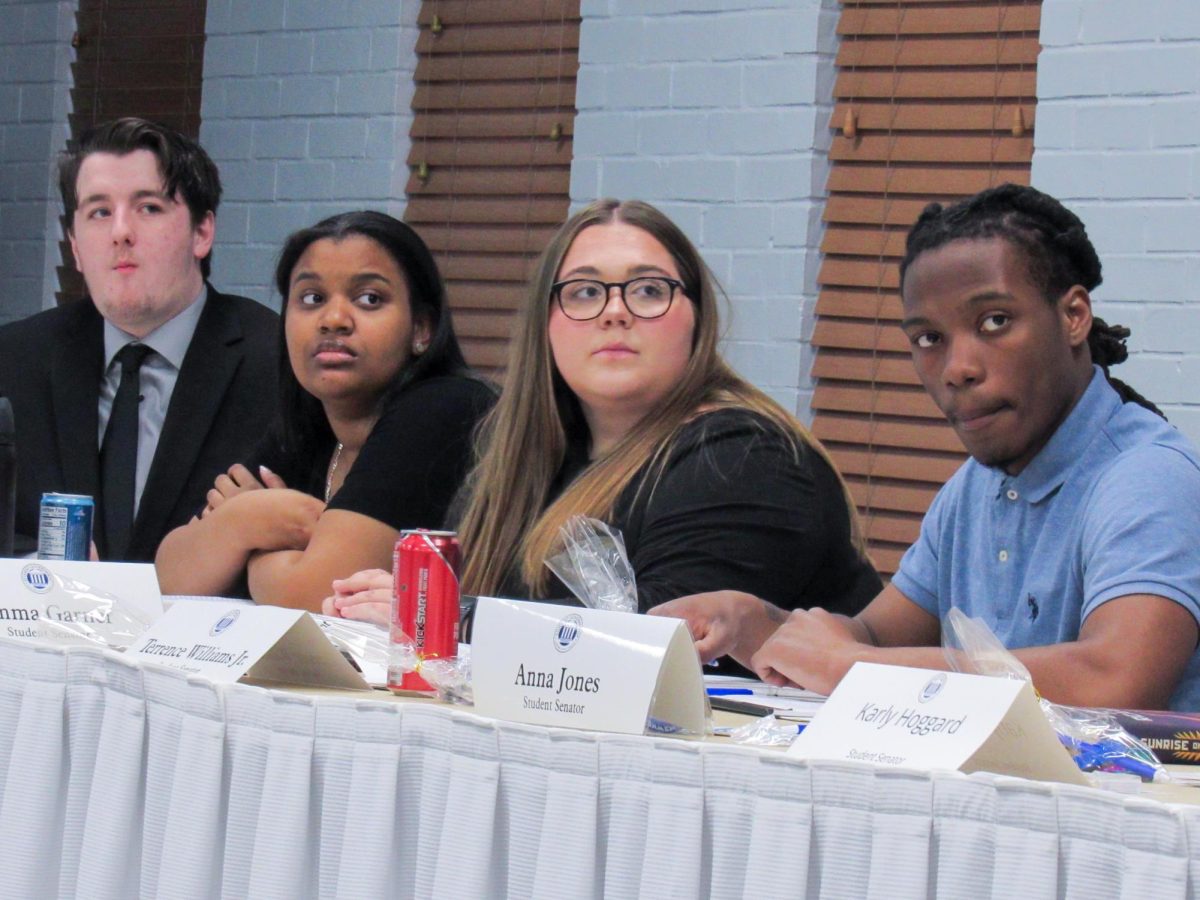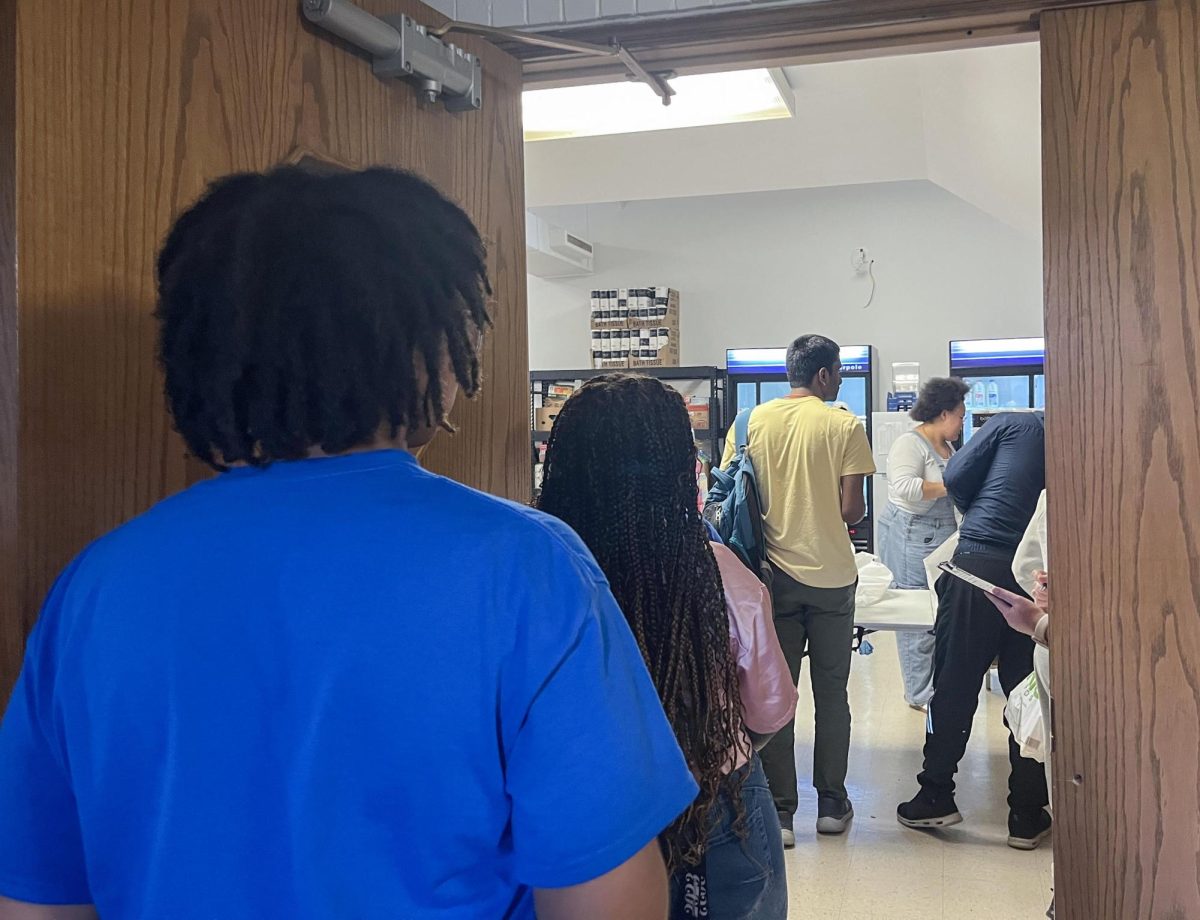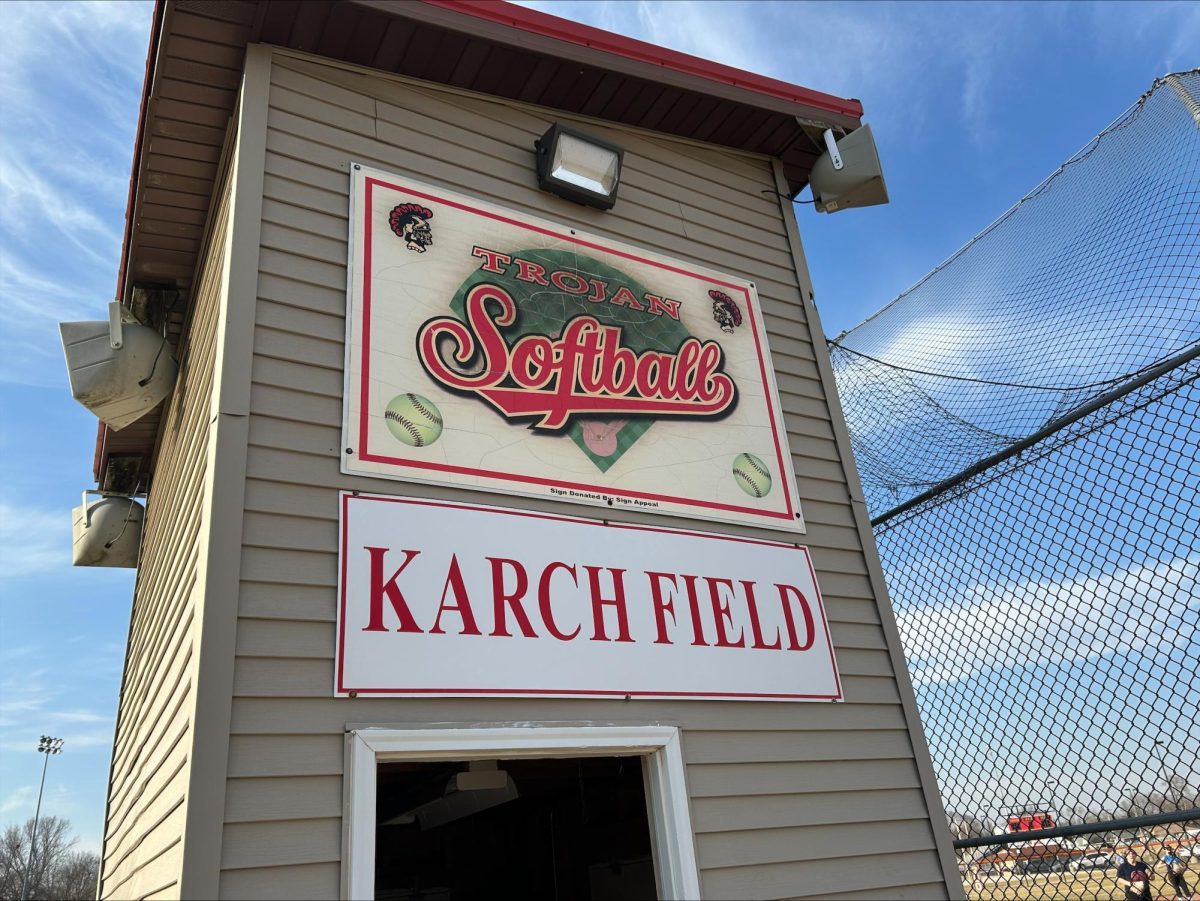Discussion connects historical issues to present day
February 15, 2017
A group of faculty and students met Wednesday to explore issues of slavery addressed by Frederick Douglass in his Finsbury Chapel reception speech.
The group connected his ideas from 1846 to relevant topics in today’s society.
Douglass’ speech is full of compelling anecdotes describing the reality of slavery in detail, said Richard England, dean of the Honors College.
In the speech, Douglass talked about the horrors of whipping, branding and physical torture slaves went through, as well as the separation of couples at slave markets.
One of the main questions Douglass asked was how slavery could exist in a country that professes to be Christian.
Douglass contrasted the Christianity of people in the United States to the Christians he spoke to in England.
“What does it mean to be free?” England asked the group.
Political science professor Kevin Anderson said personal interests and concerns of people being enslaved were not taken into account.
It was all economically driven, he said.
During the discussion, Anderson brought up an instance from 2000 in which a man named Jarrett Adams was wrongly convicted of raping a woman at the University of Wisconsin.
Later, Adams appealed the sentence and was freed, Anderson said.
On the contrary, Anderson said, Douglass did not have the choice to appeal his enslavement.
The debate between people for abortion and people opposing abortion is similar to the debate had in the 19th century on slavery as both sides had very strong opinions, England said.
He said some people found slavery morally unjust, and the opposing side saw it as beneficial to the economy.
England said the economy of the South depended on the work done by slaves, yet the economy of the North did not, causing conflict.
The development of the cotton gin and the Industrial Revolution also brought different opinions about whether slavery was right or wrong, he said.
England said climate change in today’s society also has conflicting views, which root back to the economy.
He said people who are comfortable with spending money on ethically sourced food and goods will do so, but the ones who cannot afford it would not be willing to.
People choose what will benefit them financially, just as people did when slavery was legal, Anderson said.
Not everyone is going to buy a more expensive item with ethical benefits when a cheaper product is on the market, he added.
People at that time and people today still think relatively similarly when it comes to social issues and injustice, England said.
Kennedy Nolen can be reached at 581-2812 or kdnolen@eiu.edu.








![[Thumbnail Edition] Senior Foward Macy McGlone, getsw the ball and gets the point during the first half of the game aginst Western Illinois University,, Eastern Illinois University Lost to Western Illinois University Thursday March 6 20205, 78-75 EIU lost making it the end of their season](https://www.dailyeasternnews.com/wp-content/uploads/2025/03/WBB_OVC_03_O-1-e1743361637111-1200x614.jpg)
![[Thumbnail Edition] Junior right-handed Pitcher Lukas Touma catches at the game against Bradley University Tuesday](https://www.dailyeasternnews.com/wp-content/uploads/2025/03/MBSN_14_O-e1743293284377-1200x670.jpg)


![[Thumbnail Edition] Eastern Illinois University baseball senior utility player Tyler Castro fields a ground ball during the team's first intrasquad scrimmage of the season on Jan. 31.](https://www.dailyeasternnews.com/wp-content/uploads/2025/03/BB_01_O-e1742874760130-1-e1742907504722-1200x911.jpg)
![[Thumbnail Edition] Senior tennis player Luisa Renovales Salazar hits the tennis ball with her racket at the Darling Courts at the Eastern Illinois University campus in Charleston, ILL.](https://www.dailyeasternnews.com/wp-content/uploads/2025/03/Tennis_01_O-1-e1741807434552-1200x670.jpg)





































![The Weeklings lead guitarist John Merjave [Left] and guitarist Bob Burger [Right] perform "I Am the Walrus" at The Weeklings Beatles Bash concert in the Dvorak Concert Hall on Saturday.](https://www.dailyeasternnews.com/wp-content/uploads/2025/03/WL_01_O-1200x900.jpg)
![The team listens as its captain Patience Cox [Number 25] lectures to them about what's appropriate to talk about through practice during "The Wolves" on Thursday, March 6, in the Black Box Theatre in the Doudna Fine Arts Center in Charleston, Ill.](https://www.dailyeasternnews.com/wp-content/uploads/2025/03/WolvesPre-12-1200x800.jpg)


















